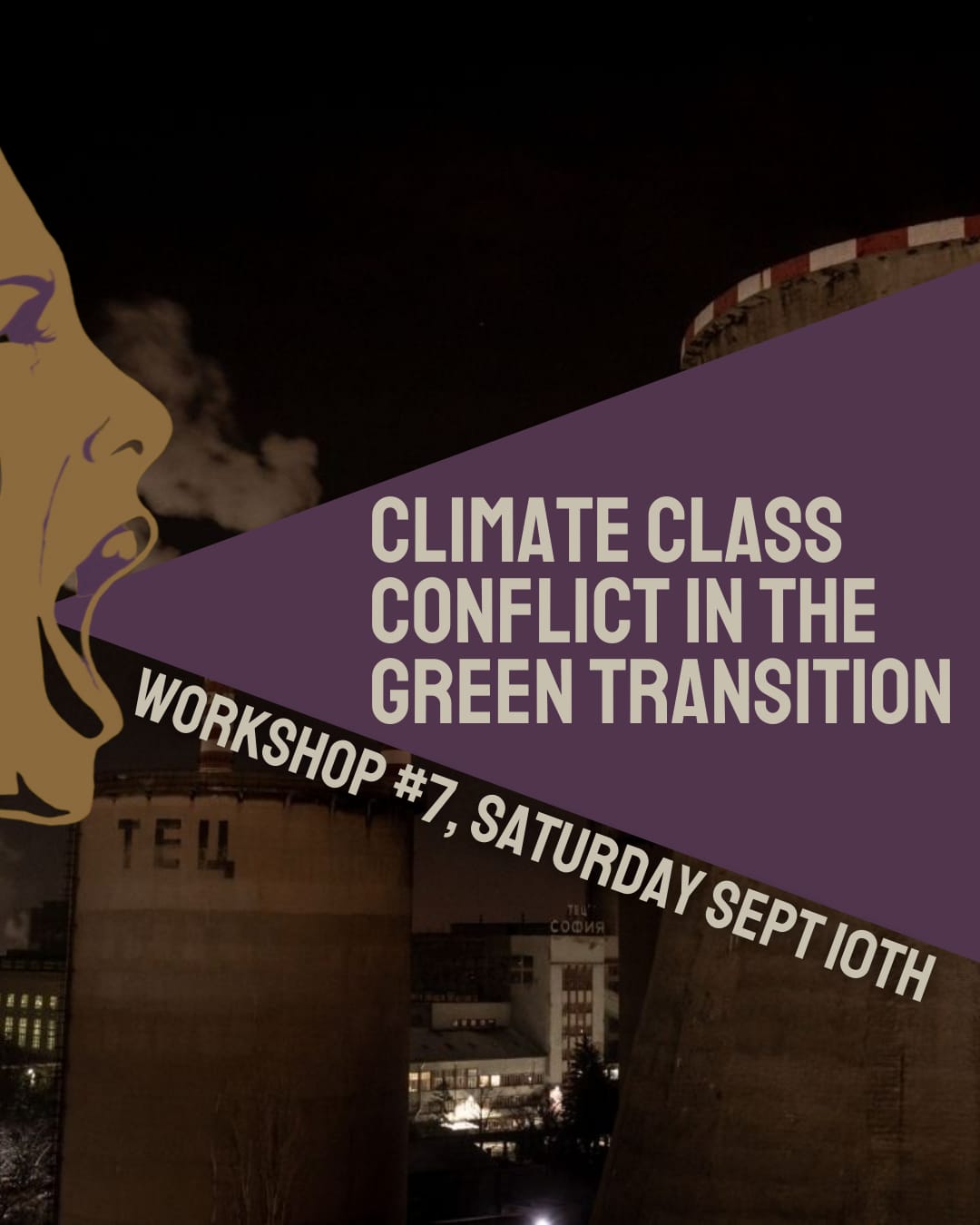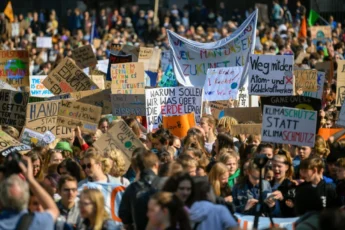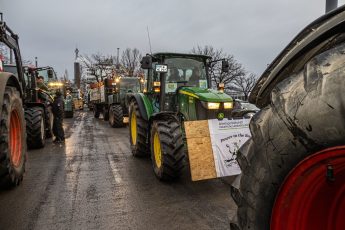
The Climate Class Conflict workshop took place within the framework of the Transnational Meeting organized in Sofia by Tss-Platform and LevFem, and it was attended by almost 80 people. The initial remarks stressed the importance to reason collectively on the needs and perspectives of the movement for climate justice, and to develop a common understanding of the ways in which the war is practically changing green policies around the world, thus also impacting the conditions of our climate struggles. Other issues raised related to the problem of overcoming the tensions between the defense of the environment and the working and living conditions of millions of people, and of confronting the divisions, hierarchies, violence, and fragmentations now exacerbated by the rush for strategic raw materials and energy supplies.
Since the beginning, we recognized that deregulation and privatization allowed for an uncontrollable surge in prices triggered by the post-pandemic recovery and then dramatically escalated by the war, which is now having a determinant impact on the green and energy policies we need to confront. The importance to overcome national divisions was soon raised as part of a strategy to learn how the green transition is impacting people around the world who also suffer for racism, patriarchy, and exploitation. In fact, national governments and companies cannot be considered interlocutors, as instead of delivering a ‘just transition’, they use the climate crisis as an excuse to pit workers against activists, wages against climate justice. They leave us with no alternative but to accumulate the power we need to go beyond capitalist’s destruction.
In order to expand our political connections, enlarge the scope of our climate activism, and strengthen our claim for a climate and energy just future, we recognized as crucial to develop common discourses and practices to collectively oppose the social hierarchies and exploitative effects introduced by the green transition and energy policies at the global level.
So, the discussion went over a critique of the green transition as it was first at the core of all national plans for post-pandemic reconstruction, and it is now enmeshed with conflict at gunpoint. We acknowledged the fact that the green transition is a crucial issue at stake for our transnational politics, because it relies on continued growth and profits exploiting the climate crisis and transferring its costs on the shoulders of workers, migrants, women, lgbtqi+ and poor people. As it was raised by many interventions, the green transition aims to open new terrains of capital accumulation, thus it produces different conditions and hierarchies among countries, and even within the same territories we share. We know that a transnational climate class conflict should have the force to face these divisions to overturn them, to imagine forms of struggles that can resonate beyond the single territories and help us gain the power we need for system-change. We then asked ourselves, which is our leverage? Which priorities should we choose to connect climate issues with other social struggles?
Many contributions highlighted that to transform the green transition in a terrain of struggle, we need to build a movement starting from both production and social reproduction issues, as they are both related to the climate crisis. While carbon plants and coal mines are reopened to face the ongoing energy crisis, logistics keeps being a key sector for capital production and distribution, as the war is now changing for good supply and energy chains. This means that we need to connect struggles for a better environment with those for better wages, for better living and working conditions. In other words, we asked ourselves how can we strike logistics to start filling the gap artificially fabricated between workers’ demands and activists’ claims for climate and social justice? At the same time, the cost-of-living crisis, the energy bills skyrocketing everywhere, the health crisis, are all terrains of struggles we should learn to practice knowing that they pose urgent problems for our transnational climate initiative. Last months’ decisions to financialize essential resources are part of the way in which the energy crisis has transformed the green transition, redirecting investments and finding new ways to pollute and exploit workers. The current crisis of inflation and high prices is rooted in years of wage and welfare cuts, but its outbreak now indicate who governments and big companies want to make pay for the green transition and the reproduction of the society we live in. We shared the idea that to confront this crisis and fill a space of contention that would otherwise be occupied by liberal and authoritarian positions, discussions on how to refuse these unbearable alternatives must be raised again.
There are already many climate movements and struggles of workers and activists that are confronting the variegated social costs of the green transition in war times. As it emerged during the workshop, what we lack is a space to build connections among them on a transnational level. So, we committed to keep the Climate Class Conflict initiative going, as it was recognized as a space of discussion and organization that can help us find common terrains and strategies to frame the struggles we need in the months to come. If you are a climate activist eager to join this process of transnational discussion and organization, contact us at: info@transnational-strike.info
Read here the TSS declaration from the Sofia meeting: https://www.transnational-strike.info/2022/10/11/tss-declaration-from-the-sofia-meeting/





